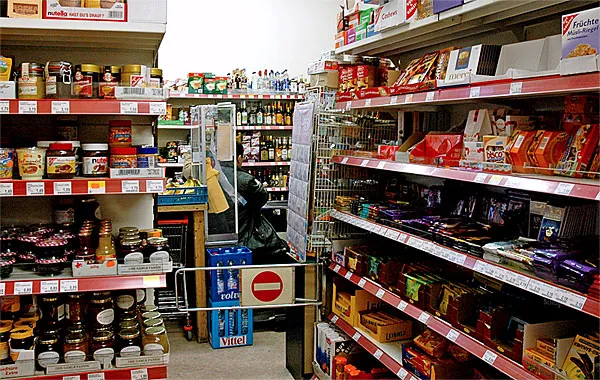Grocery shopping in Germany offers a unique experience that blends efficiency, variety, and a touch of local charm. For expats new to the country, understanding the nuances of German grocery shopping can make the process smoother and more enjoyable. This guide will walk you through what to expect, from store types and shopping habits to navigating the aisles and understanding local products.
1. Types of Grocery Stores
Supermarkets
Germany’s supermarket landscape is diverse, ranging from large chains to smaller neighborhood stores. Major supermarket chains include:
- Aldi and Lidl: Known for their affordability and no-frills approach, these discount stores offer a wide range of products, including groceries, household items, and seasonal goods. They often feature limited store brands and a rotating selection of special offers.
- Rewe and Edeka: These supermarkets provide a broader selection of products, including more premium and international brands. They offer fresh produce, bakery items, and a variety of organic and specialty foods.
Discounters
Discounters like Aldi and Lidl focus on providing essential items at lower prices. They often have a more streamlined selection compared to larger supermarkets but offer good quality at budget-friendly prices.
Specialty Stores
For specific needs, such as organic products or international foods, specialty stores are a great option. Stores like Bio Company or Alnatura cater to organic shoppers, while Asian markets and Turkish stores offer international ingredients not always found in regular supermarkets.
2. Shopping Habits and Store Layout
Shopping Frequency
Germans often shop for groceries more frequently than some other cultures, with many people making smaller, regular trips to the store rather than doing a large weekly shop. This habit is partly due to the high quality and freshness of local produce and the smaller size of many German kitchens.
Store Layout
German supermarkets are typically organized with a clear layout, featuring sections for fresh produce, dairy, meats, and bakery items. Aisles are labeled in German, so familiarizing yourself with common terms can be helpful:
- Obst und Gemüse: Fruits and vegetables
- Fleisch und Wurst: Meat and sausages
- Milchprodukte: Dairy products
3. Navigating the Aisles and Local Products
Product Labels
Most products in Germany come with labels in German, including ingredient lists and nutritional information. Look for “Zutaten” (ingredients) and “Nährwert” (nutritional values) to understand what you’re buying. Some stores also offer bilingual labels or have staff who can assist if needed.
Local Specialties
German grocery stores feature a range of local specialties that you might not be familiar with. Some popular items include:
- Bratwurst: A type of German sausage that is a staple at barbecues.
- Sauerkraut: Fermented cabbage that’s often served as a side dish.
- Pretzels (Brezn): A popular baked good that comes in various sizes and flavors.
4. Shopping Etiquette and Checkout
Bag Your Own Groceries
It’s common practice in Germany to bag your own groceries. Bring your own reusable bags or purchase them at the store. Many stores charge for plastic bags to encourage eco-friendly practices.
Checkout Process
At the checkout, be prepared for a quick and efficient process. German cashiers are typically fast, and you’ll need to keep up with their pace. Have your payment ready, whether it’s cash, debit card, or credit card. Note that smaller stores might not accept credit cards, so carrying some cash can be useful.
5. Tips for Expats
Learn Basic German Terms
Learning basic German grocery-related vocabulary can enhance your shopping experience. Simple phrases like “Wo finde ich…?” (Where can I find…?) and “Ich hätte gerne…” (I would like…) can be very helpful.
Explore Local Markets
In addition to supermarkets, explore local markets like Wochenmärkte (weekly markets), where you can find fresh, local produce and unique regional products. These markets often offer a more personal shopping experience and opportunities to interact with local vendors.
Understand Local Customs
Familiarize yourself with local customs, such as the use of pfand (deposit) on bottles and cans. You’ll receive a deposit when you purchase these items, which you can reclaim by returning them to a reverse vending machine at the store.
Grocery shopping in Germany can be a delightful exploration of local culture and cuisine. By understanding the different types of stores, familiarizing yourself with the layout and local products, and adapting to local shopping habits, you’ll find the experience both efficient and enjoyable. Embrace the opportunity to discover new foods and practices as you integrate into German life.
